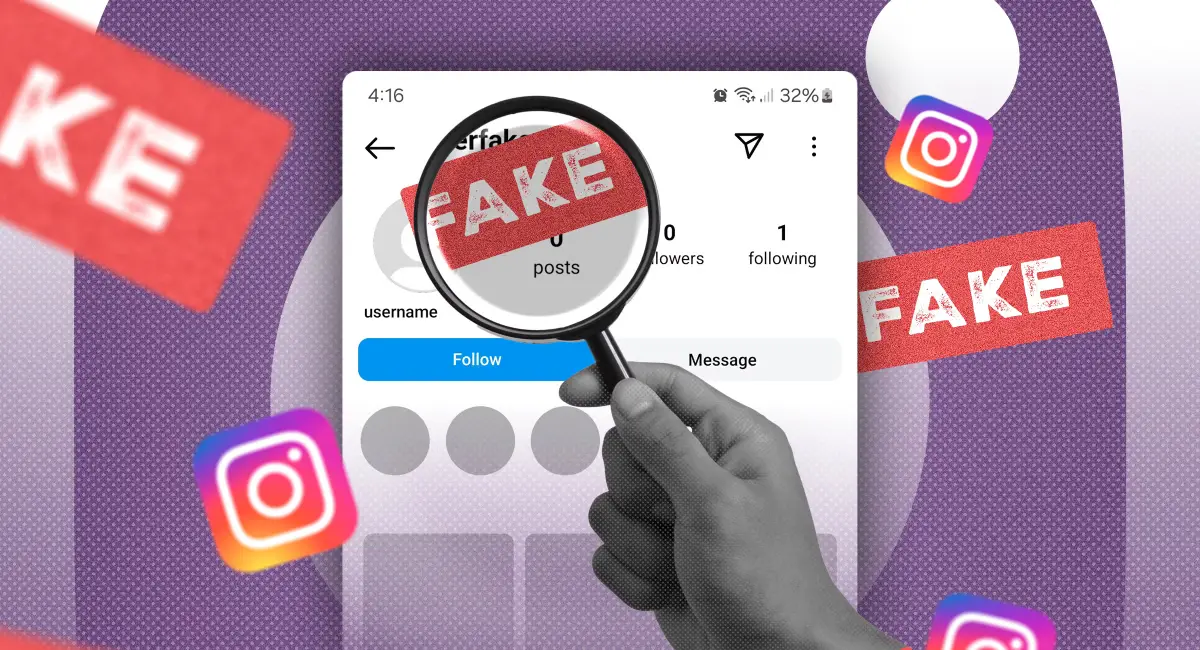Darren Campbell, who pitches himself an Amazon FBA expert and founder of the FBA Brand Builder (FBABB), sure talks a big game. He’s on a mission—according to him—to build the biggest and most successful brand-building program in the world. Sounds impressive, right? But if you take a closer look at his personal and professional empire, things start to feel a little... off. Beneath the glossy exterior lies what seems like a shaky operation propped up by bold claims, questionable tactics, and outright shady behavior. From falsely claiming U.S. citizenship in a trademark filing to having an Instagram following bloated with fake accounts, Darren’s "empire" looks more like smoke and mirrors than the powerhouse he pitches.
In this article, we’re diving into two key areas that shed light on Darren’s credibility—or lack thereof: the issues with his Outlantis trademark filing and the sketchy stats behind his Instagram account, where nearly 45% of his followers are fake, and engagement rates are embarrassingly low. Together, these paint a picture of dishonesty that makes you seriously wonder: can this guy be trusted as a mentor or entrepreneur?
The Outlantis Trademark: A Shady Filing
Darren Campbell’s Outlantis brand snagged a spot in the U.S. Patent and Trademark Office (USPTO) registry back in December 2022. But here’s where things get dicey: his application includes a glaring red flag. Darren falsely claimed to be a U.S. citizen, even though he lives in Northern Ireland.
This isn’t some minor mix-up—it’s a serious legal and ethical misstep that could not only put his trademark at risk but also land him in hot water legally.
Why Citizenship Actually Matters
In U.S. trademark applications, the applicant has to be upfront about their citizenship or residency—it’s not just a formality. U.S. citizens get certain legal perks during the process, while foreign applicants face more hoops, like providing extra documentation or hiring a U.S.-based attorney.
Darren did go through a legitimate attorney, Nyall Engfield, but that doesn’t excuse the outright lie on his application. His claim of U.S. citizenship isn’t just inaccurate; it’s provably false.
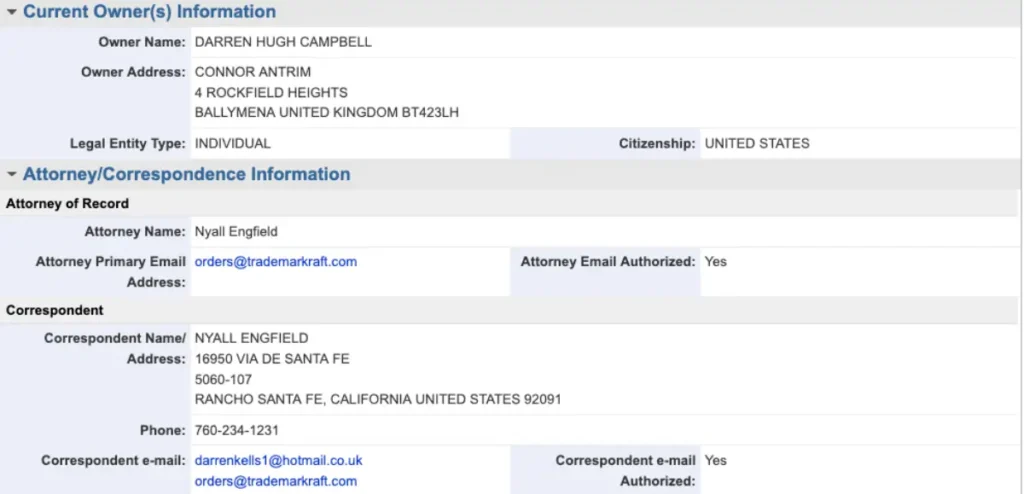
What Could Happen Next?
Lying on a trademark application isn’t a small thing—it’s a big deal. If the false information gets flagged, the USPTO could cancel or suspend Darren’s Outlantis trademark altogether. Without that legal protection in the U.S., his brand and any related business ventures would be left wide open to challenges or copycats.
Potential Fraud Charges
Here’s where it gets even more serious. Providing false information to a federal agency is considered fraud under Title 18 of the U.S. Code, Section 1001. That’s not just a slap-on-the-wrist situation—Darren could face hefty fines or, in the worst-case scenario, even jail time if federal prosecutors decide to act on it.
A Blow to His Reputation
For someone who constantly touts the supposed success of his Outlantis brand to hook new clients into his program, this level of dishonesty is a terrible look. Darren loves to boast about how his pool basketball hoop allegedly brought in $178,000 in revenue and $78,000 in profit in just 30 days during his challenge last year.
But even setting aside those highly questionable figures, it’s worth noting that he’s featured as a front-page case study on Rankbell’s website—the very service that provided the tools he relied on to hit those numbers. Add to that the fact that his U.S. trademark filing for Outlantis is riddled with false information, and it’s clear there’s a bigger issue.
Not a One-Off Mistake
This isn’t a one-off mistake either; Darren’s team has also submitted 130 trademark applications on behalf of clients, many of which are now under investigation by the USPTO. The pattern of misleading and fraudulent behavior is no coincidence—it’s a reflection of Darren’s own actions.
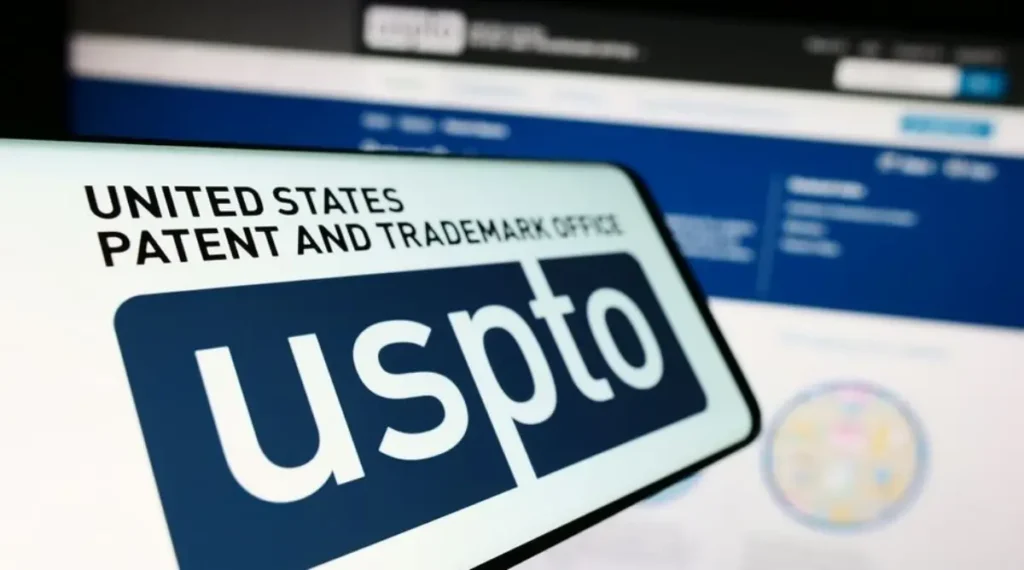
Nyall Engfield’s Role and the FBABB Pattern
Darren’s trademark application was filed through Trademarkraft.com, with Nyall Engfield listed as the attorney of record. While Nyall legitimately handled Darren’s filing, reports suggest his name has been used by FBABB for other client trademark applications—without his knowledge or consent. In particular, Maria Zafar and Jason McKay, both connected to FBABB, are believed to have fraudulently submitted trademarks under Nyall’s name.
This troubling behavior points to deeper issues within Darren’s organization. A pattern of unethical practices and a glaring lack of oversight only add to the growing doubts about how FBABB operates.

Fake Instagram Followers: A Red Flag for Darren’s Personal Brand
Darren’s Instagram account plays a key role in his marketing strategy, acting as a platform to showcase his "success" and influence. With over 59,000 followers, it’s designed to give the impression of a thriving personal brand.
However, an analysis using UpGrow’s Instagram Fake Follower Checker reveals a troubling statistic—44.81% of those followers are fake. That’s nearly half, calling into question the authenticity of the image he’s trying so hard to project.
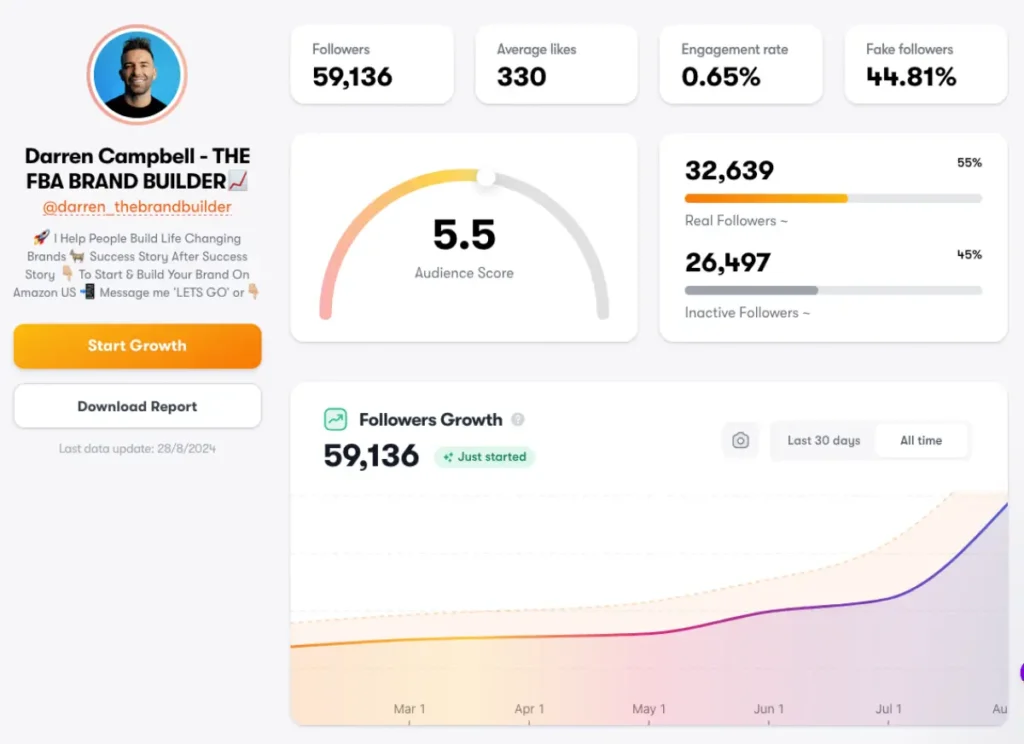
Engagement Metrics Expose the Reality
Darren’s Instagram might flaunt a hefty follower count, but his engagement stats tell a very different story:
- Average Likes: 330 per post
- Engagement Rate: 0.65% (well below industry standards)
Take, for example, his much-hyped “Biggest Giveaway” post. It promised six free holidays to Florida and saw a noticeable spike in engagement—but only because it was boosted by paid media campaigns, not organic reach.
Now compare that to his everyday posts. Despite having 59,000 followers, his average engagement rate limps along at under 1%. This glaring gap makes it clear: his followers are either fake, uninterested, or both.
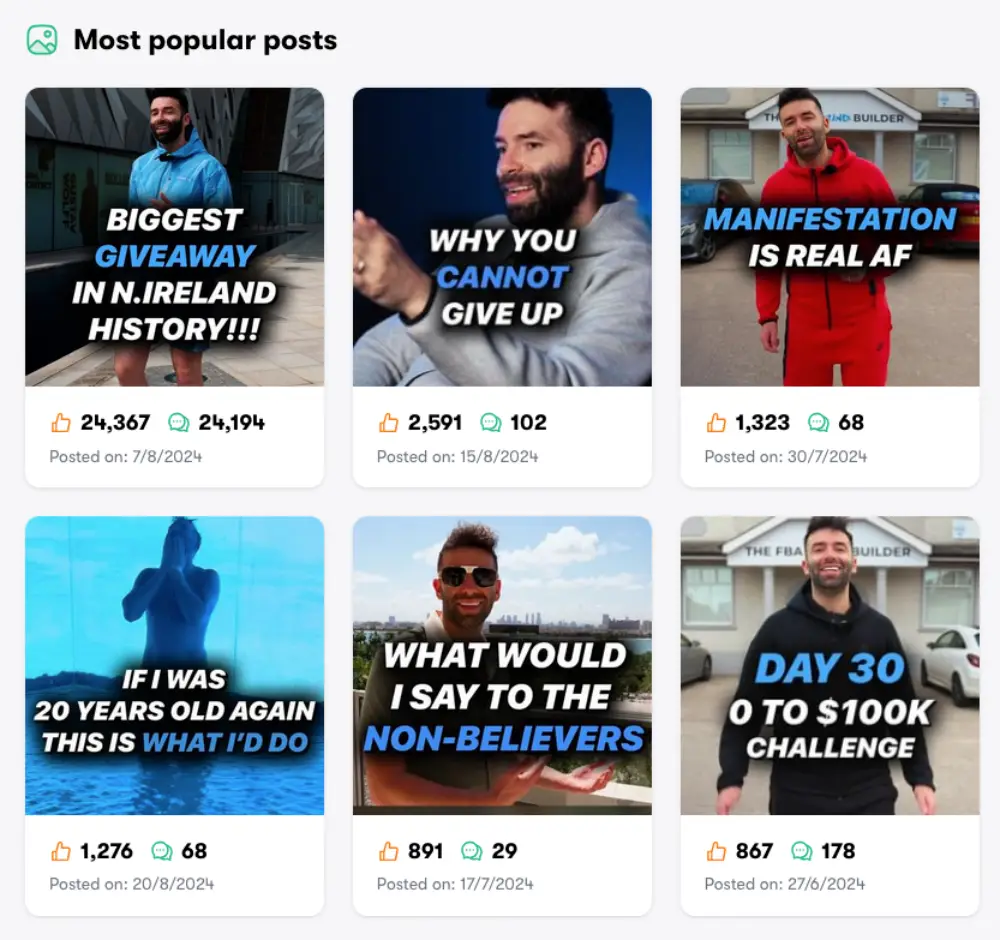
Timing the Follower Spikes
A closer look at Darren’s follower growth reveals some curious patterns. Significant spikes align with two key moments: the launch of the FBA Brand Grifter website and the negative press he received from the Belfast Telegraph.
These trends strongly suggest that Darren has been buying fake followers to keep up appearances and counteract the drop in real followers who’ve likely disengaged amidst the mounting scandal.
What Clients Should Know
Darren’s reliance on fake followers, misleading tactics, and shady legal filings raises serious doubts about the foundation of his mentorship program. While he markets himself as someone who helps clients build “life-changing brands,” the reality is clear: he can’t even build his own brand honestly.
For those considering or already involved in FBABB, here’s what Darren’s track record reveals:
- False Promises
Darren’s so-called success stories and inflated numbers create a shiny facade, but the truth behind his actions—falsifying citizenship, buying fake followers, and sharing unverified claims—paints a much different picture. - Legal Risks
If Darren’s team has submitted fraudulent trademark filings for clients, those businesses could face serious legal trouble, including invalid or compromised trademarks. - A Pattern of Deception
From the Outlantis trademark mess to fake Instagram engagement, Darren’s entire brand is built on a web of dishonesty. This track record makes it impossible to see him as a trustworthy mentor or entrepreneur.
For anyone considering joining FBABB, let this serve as a cautionary tale.
A mentor who can’t even build his own brand honestly is hardly in a position to teach others how to build theirs. And for those already enrolled, it’s worth taking a hard look at the program’s ethics and whether it delivers the value you were promised.

